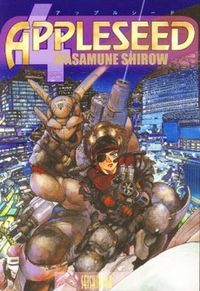Martial Peak Reviews
D. Dove's His Plaything is a contemporary romance that delves into the complexities of desire, power dynamics, and the often unpredictable nature of human relationships. The book centers around two main characters, Clark and Seth, whose interactions form the crux of the narrative. The story begins with a tantalizing premise: a week has passed since Clark, a successful and wealthy man, invited Seth into his world, leaving Seth in a state of uncertainty and longing.
The blurb sets the stage for a story that promises both emotional depth and tension. Clark, with his confidence and established life, stands in stark contrast to Seth, who feels he has little to offer. This dynamic is a common trope in romance literature, yet Dove manages to infuse it with fresh energy through nuanced character development and a keen understanding of the emotional intricacies involved.
One of the most compelling aspects of His Plaything is its exploration of power dynamics. Clark's wealth and success place him in a position of power, but Dove skillfully avoids reducing Seth to a mere passive participant in their relationship. Instead, Seth's internal struggles and desires are given equal weight, creating a balanced portrayal of a relationship where both parties have agency. This is a refreshing take, as it allows the reader to engage with both characters on a deeper level.
The character development in the novel is particularly noteworthy. Seth is portrayed as a complex individual, grappling with feelings of inadequacy and longing. His journey is one of self-discovery, as he navigates his emotions and the uncertainty of his relationship with Clark. Dove captures Seth's vulnerability with sensitivity, making him a relatable and sympathetic character.
Clark, on the other hand, is depicted as a man who knows what he wants and is not afraid to pursue it. However, Dove ensures that Clark is not a one-dimensional character. His motivations and desires are explored with depth, revealing a man who is not just driven by power and success, but also by a genuine interest in Seth. This adds layers to his character, making him more than just the archetypal wealthy love interest.
The chemistry between Clark and Seth is palpable, and Dove excels at building tension and anticipation. The initial encounter between the two sets the tone for their relationship, and the subsequent interactions are charged with emotion and desire. The author’s ability to convey the intensity of their connection is one of the book’s strengths, drawing readers into the story and keeping them invested in the outcome.
In terms of themes, His Plaything touches on the idea of self-worth and the impact of societal expectations on personal relationships. Seth's perception of himself as someone who has "nothing to offer" is a recurring theme, highlighting the internal struggles many face when confronted with societal standards of success and value. Dove handles these themes with care, offering a narrative that is both thought-provoking and emotionally resonant.
Comparatively, His Plaything shares similarities with other contemporary romances that explore power dynamics, such as E.L. James's Fifty Shades of Grey series. However, Dove’s approach is more subtle and character-driven, focusing on emotional depth rather than sensationalism. This makes His Plaything a standout in the genre, appealing to readers who appreciate a more nuanced exploration of romance and relationships.
Overall, His Plaything is a compelling read that offers a fresh take on familiar themes. D. Dove's ability to craft complex characters and explore intricate emotional landscapes makes this book a worthwhile addition to the contemporary romance genre. The novel's exploration of power, desire, and self-worth is both engaging and thought-provoking, leaving a lasting impact on its readers.
For those interested in a romance that goes beyond the surface, His Plaything is a must-read. It is a testament to Dove's skill as a storyteller and her ability to capture the essence of human relationships in all their complexity.












![The Maid’s Secret Tea Recipe for the Prince [Official]](/upload/pic/manga/the-maid---s-secret-tea-recipe-for-the-prince--official-.jpg)










Reviews 0
Post a Reviews: